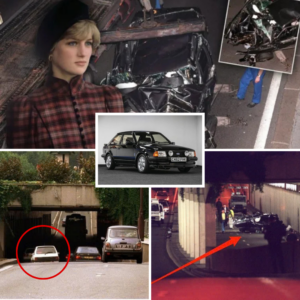On the evening of August 22, 2025, a senseless tragedy unfolded aboard a Lynx Blue Line train in Charlotte, North Carolina, claiming the life of Iryna Zarutska, a 23-year-old Ukrainian refugee who had sought safety and a new beginning in the United States. The brutal stabbing, captured on surveillance footage, has sparked outrage, reignited debates over public safety, and exposed systemic failures in the criminal justice and transit security systems. Witnesses to the horrific event described a chilling sequence of events, with one recalling, “No one knew his intent until he suddenly stood up…” This article reconstructs the moments leading to Zarutska’s death, drawing from witness accounts, official reports, and public reactions, while shedding light on the broader implications of the tragedy.
A Life Cut Short
Iryna Zarutska was a young woman full of promise. Born in Kyiv, Ukraine, in 2002, she fled her homeland in August 2022 with her mother, sister, and brother to escape the escalating conflict between Russia and Ukraine. Settling in Charlotte, North Carolina, Zarutska quickly adapted to her new life. She learned English fluently, enrolled at Rowan-Cabarrus Community College, and worked at Zepeddie’s Pizzeria, where she was cherished as both an employee and a friend. Her obituary described her as a creative soul with a passion for art, having graduated from Synergy College in Kyiv with a degree in Art and Restoration. She loved sculpting, designing unique clothing, and dreamed of becoming a veterinary assistant, driven by her deep love for animals. Neighbors remembered her as kind and gentle, often caring for their pets, while her vibrant personality left a lasting impression on her community.
On that fateful evening, Zarutska had just finished her shift at the pizzeria and boarded the Lynx Blue Line train at the East/West Boulevard station, likely texting her boyfriend to say she’d be home soon. She sat down, unaware that Decarlos Brown Jr., a 34-year-old man with a history of mental illness and a lengthy criminal record, was seated behind her. What followed was a sudden and unprovoked attack that ended her life and shocked the nation.
The Terrifying Moments
Surveillance footage released by the Charlotte Area Transit System (CATS) on September 5, 2025, provides a haunting glimpse into the moments before Zarutska’s death. At around 9:50 p.m., Brown, wearing a red hoodie, was seen sitting alone, appearing restless. Witnesses noted his erratic behavior—he was fidgeting, shaking his head, and muttering to himself, though no one suspected the danger he posed. “He looked unsettled, but you see people like that sometimes on the train. You don’t think they’re about to do something like that,” one passenger later told local media.
Zarutska boarded the train and took a seat directly in front of Brown, engrossed in her phone. According to witnesses, there was no interaction between the two—no words, no glances, no provocation. The atmosphere in the train car was typical of a late evening commute, with passengers absorbed in their own worlds. Then, without warning, Brown stood up, pulled a folding pocket knife from his hoodie, and attacked. “No one knew his intent until he suddenly stood up,” a witness recounted, describing the chilling moment when Brown lunged forward, stabbing Zarutska three times, including at least once in the neck.
The attack was over in seconds. Zarutska, caught off guard, raised her hands to shield her face, her eyes filled with terror as she tried to protect herself. Blood stained her clothing as she collapsed onto the seat, fatally wounded. Passengers froze in shock, some turning away, others too stunned to react immediately. One witness described the scene as “like something out of a nightmare—you couldn’t believe it was happening.” A few passengers attempted to intervene after the attack, with one trying to bandage her wounds and another rushing to alert the train operator, but it was too late. Zarutska was pronounced dead at the scene.
Brown, meanwhile, calmly walked toward the train door, still holding the bloodied knife. He discarded his stained hoodie and left the weapon near the station before being apprehended by police on the platform. A chilling detail emerged from the footage: as he exited, Brown was heard saying, “I got that white girl,” a statement that added a disturbing racial dimension to the already horrific crime, though authorities have not confirmed a motive.
The Aftermath and Public Outrage
The murder of Iryna Zarutska sent shockwaves through Charlotte and beyond, amplified by the release of the surveillance video, which spread rapidly on social media. The brutality of the attack, combined with the fact that it occurred in a public space with no immediate intervention, fueled public anger and grief. Zepeddie’s Pizzeria, where Zarutska worked, issued a heartfelt statement: “We didn’t just lose an amazing employee but a dear friend. Iryna Zarutska left this world far too soon, and our hearts are broken.” Her family, devastated, spoke of her dreams of a peaceful life in America: “Iryna came here for safety, only to have her life taken in the most horrific way. No family should endure this.”
The case quickly became a flashpoint in national debates over public safety, criminal justice reform, and mental health. Decarlos Brown Jr. had a well-documented history of criminal activity, with at least 14 prior arrests since 2007, including convictions for armed robbery, assault, and misuse of the 911 system. Despite his extensive record and documented mental health issues, including a reported belief that “synthetic materials” controlled his behavior, Brown was out on bail awaiting trial for earlier charges at the time of the murder. A judicial order for a forensic mental health evaluation in July 2025 was never completed, raising questions about oversight and accountability.
Prominent figures weighed in, amplifying the controversy. President Donald Trump called for Brown to face the death penalty, describing him as a “deranged monster” and Zarutska as a “beautiful young woman from Ukraine seeking peace and safety.” He criticized local officials, particularly Democrats, for policies he claimed enabled such crimes, stating, “Her blood is on the hands of those who refuse to lock up bad actors.” Elon Musk echoed these sentiments, urging the public to “name and shame” prosecutors and judges who allow dangerous individuals to remain free, arguing that systemic change requires holding accountable those who fund lenient policies.
Systemic Failures and Calls for Reform
The tragedy exposed significant gaps in Charlotte’s public transit security and criminal justice systems. The Lynx Blue Line train had no security personnel in the car where the attack occurred, despite officers being present in an adjacent car. CATS, which relies on a private security firm, admitted to staffing shortages and a lack of consistent fare enforcement, as Brown was reportedly fare-jumping at the time. In response, CATS announced plans to increase fare inspections, install new ticket validators, and bolster security presence on trains and platforms. However, critics, including city council member Dimple Ajmera, argued that “current safety policies are clearly not enough,” warning that public trust in the transit system was at risk.
Charlotte Mayor Vi Lyles faced intense scrutiny for her initial response, which emphasized compassion for individuals struggling with mental health issues and homelessness rather than focusing solely on the victim. Her call to avoid villainizing such groups drew sharp criticism, particularly after she urged media not to share the surveillance video “out of respect for Iryna’s family.” Many, including Republican lawmakers, viewed her remarks as downplaying the severity of the crime. U.S. Secretary of Transportation Sean Duffy went further, blaming Charlotte officials for failing to protect Zarutska and launching an investigation into the city’s transit safety measures.
The case also reignited debates over cashless bail and judicial leniency. Brown’s release without bail, despite his extensive criminal history, was cited as a failure of the system. Federal prosecutor Russ Ferguson labeled the attack a “terrorist act” and vowed to seek justice for Zarutska, with charges including first-degree murder and causing death on a public transit system, carrying a potential death penalty.
A Community Mourns
As Charlotte grapples with the fallout, Zarutska’s memory endures through the love and admiration of those who knew her. A candlelight vigil is planned for September 22, 2025, to honor her life, and her family intends to lay her to rest in the United States. Her story—a young woman fleeing war only to meet a tragic end in a place she believed was safe—has resonated globally, drawing attention to the challenges faced by refugees and the vulnerabilities in urban public spaces.
Iryna Zarutska’s death is a stark reminder of the fragility of safety and the urgent need for systemic reforms. As one witness put it, “You never think something like this could happen until it does.” Her loss has left an indelible mark, not only on her family and community but on a nation wrestling with how to prevent such tragedies in the future.





